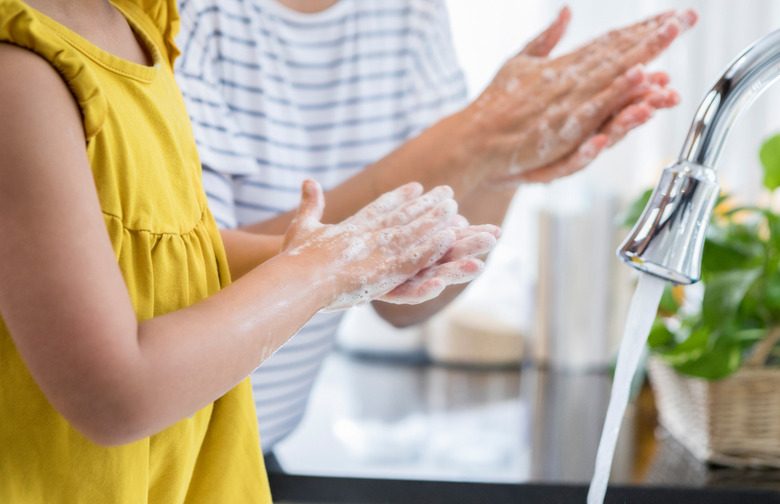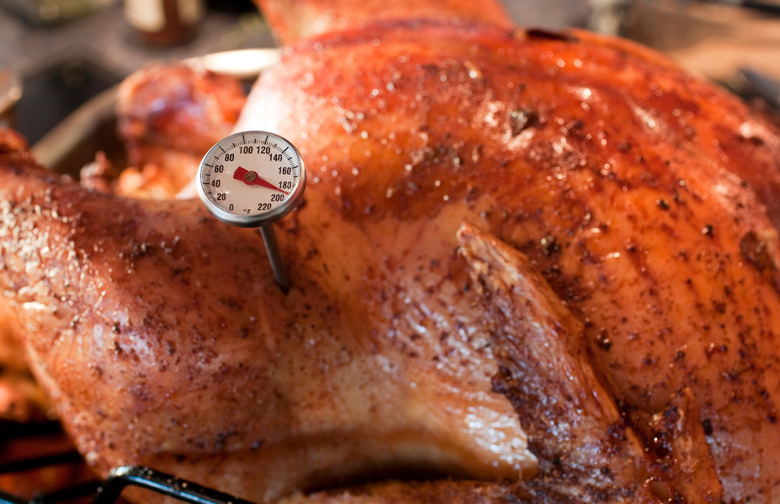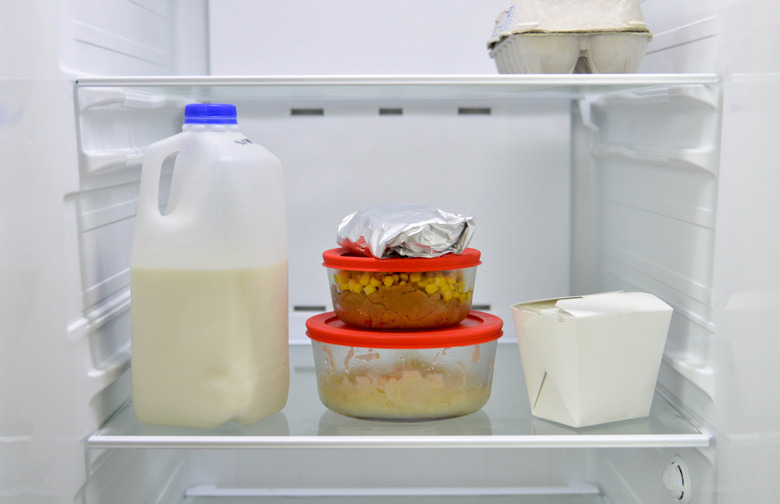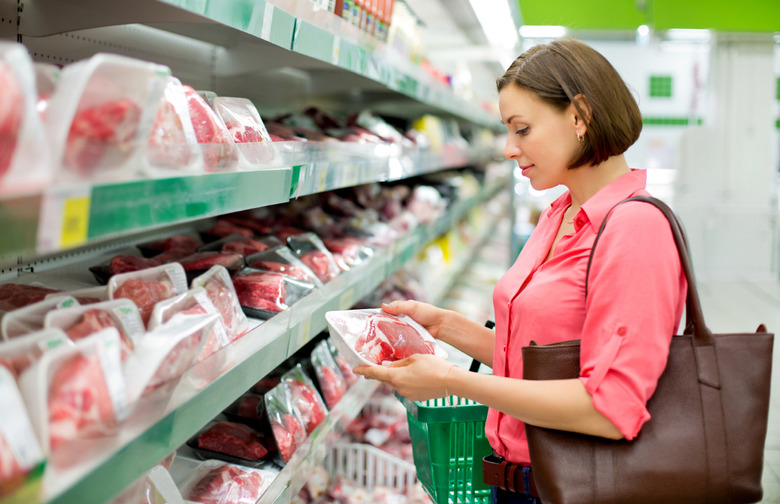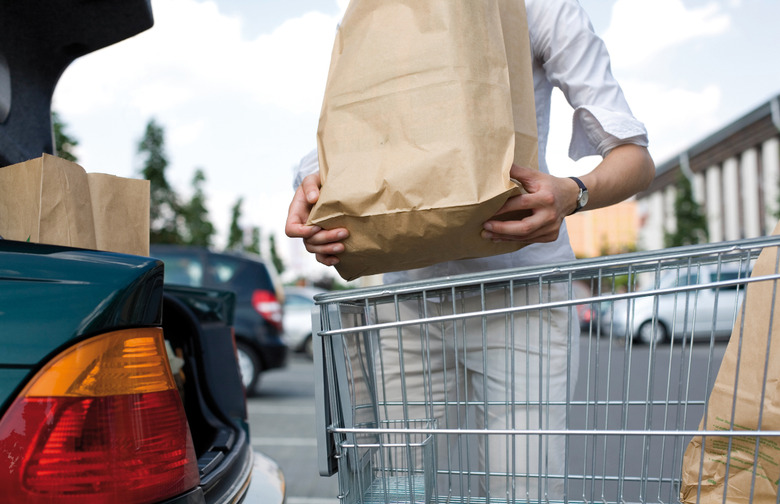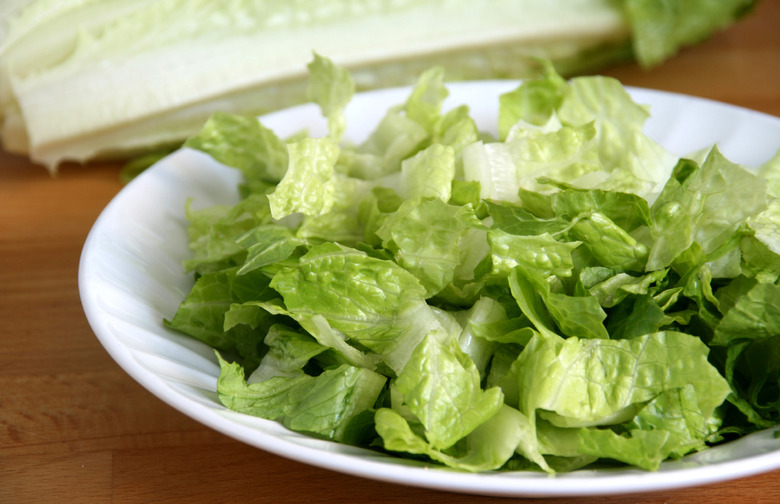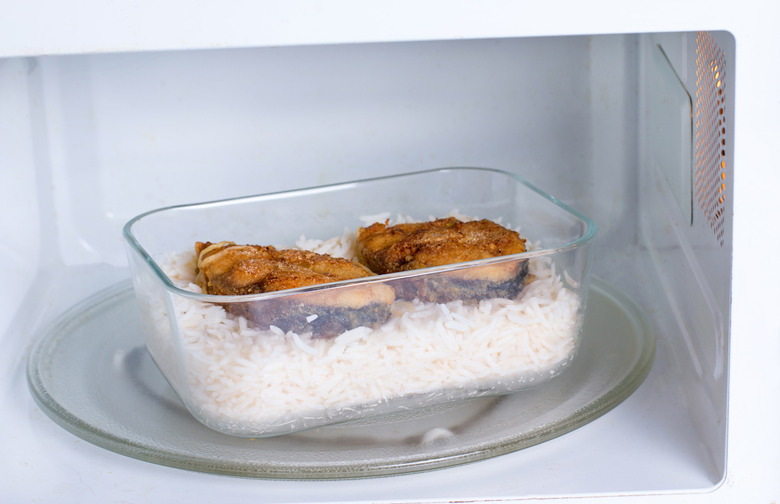Tips For Avoiding Food Poisoning Gallery
Food poisoning can be painful, exhausting, and honestly disgusting. The worst part about food poisoning is that once you get it, there's not much you can do. For hours or days or however long it takes for the offending morsel to leave your system, you're out of commission — sipping electrolytes on your couch with a bucket in hand.
"Food poisoning" is a blanket term for any form of illness that results from eating expired or contaminated food. Food can become contaminated with bacteria such as E. coli, viruses such as hepatitis, and even some forms of parasites. Symptoms vary, but common experiences include fever, aches, pains, vomiting, and frequent trips to the bathroom.
Some extreme cases of food poisoning can result in a hospital visit or even death — but these cases often involve other interfering factors, such as an already poor state of health or effects of dehydration. If you do get food poisoning, it's crucial to stay hydrated. Other tactics for surviving the onslaught of illness include eating simple, unseasoned staple foods such as bread and rice and avoiding substances like dairy, caffeine, and alcohol. You should also take care to eat slowly, so you can gauge your stomach's reaction to the food before it's too late.
Though you can't guarantee you'll avoid it entirely, food poisoning is somewhat preventable. Use these simple tips to avoid food poisoning as best you can.
Always Wash Your Hands
This one's obvious — you should always wash your hands before eating or preparing food. Hand sanitizer is a good alternative for when you don't have access to a sink, but it's never as effective. Hand washing should be done with soap and warm water; ensure you lather for at least 20 to 30 seconds. The friction is how most of the bacteria get washed off.
Use a Cooking Thermometer
A cooking thermometer is a surefire way to check to make sure you aren't undercooking or overcooking your meat. Once the inside of your cut of meat reaches a certain temperature, it's guaranteed to be free of the live bacteria that can make you sick. Roasts and steaks should be cooked to at least 145 degrees Fahrenheit. Chicken is done at 165 degrees. Ground beef and burgers need to be cooked to at least 160 degrees Fahrenheit to ensure safety.
Refrigerate Your Leftovers Immediately
It's normal to keep cooked food out during dinner, just in case anyone wants to go in for seconds. But once your meal is over, put away your leftovers promptly. After two hours, according to the U.S. Department of Agriculture, cooked food is at a risk of going bad if left at room temperature. Pathogenic bacteria love room-temperature food; if bacteria grow and you later eat it, you're likely to get sick.
Keep Your Kitchen Clean
You should really be keeping on top of kitchen cleaning, anyway — if you're not sure where to start, here's a guide for kitchen cleaning anyone can use. Keeping a clean kitchen ensures that the surfaces where you're preparing and serving food are safe from pathogens. If you hate harsh chemicals, you don't need to rely on store-bought products. You can use all-natural alternatives that work just as well!
Wash Your Dishcloths
Dishcloths are used almost every time you cook. You touch them after you wash your hands. You dry your counter with them. They sit in your kitchen and can catch all kinds of germs. Make sure you wash your dishcloths regularly; you can throw them in your laundry with the rest of your clothes and towels.
Store Raw Meat on the Bottom Shelf
This might seem like a random recommendation, but fridge placement matters. If you put meat on the bottom shelf, you eliminate the risk of any juices from the meat dripping onto your other food.
Keep Your Fridge Cold Enough
Most refrigerators offer an option to alter the temperature of your fridge and freezer. To prevent an environment with temperatures where bacteria can grow, keep the fridge at 40 degrees Fahrenheit or lower and the freezer at 0 degrees Fahrenheit.
Look Out for ‘Use By’ and ‘Best By’ Dates
Even though "use by" and "best by" dates can sometimes be preemptive and overly cautious, they are important to pay attention to. After the expiration date, dispose of the food properly to ensure your food is still safe to eat.
Avoid Unpasteurized Dairy Products
Otherwise known as raw milk, unpasteurized milk is generally regarded as dangerous to consume. It's more common abroad, but no matter what country you're in you should avoid it. The Centers for Disease Control and Prevention issued a warning in November for anyone who had consumed raw milk to see a doctor. Unpasteurized cheese has also been linked to food poisoning outbreaks. All of these unpasteurized dairy products can carry food-borne bacteria such as listeria, E. coli, and Brucella.
Know Which Foods Pose the Most Risk
It seems like some foods are just always getting recalled. Lettuce, for instance, has been involved in all kinds of outbreaks, especially recently. That's no coincidence — some foods are more prone to catching food-borne bacteria than others, whether it's due to their texture or methods of packaging and production. Be extra cautious when handling the foods that are most likely to make you sick.
Keep Cold Foods Bagged Together
When grocery shopping, you might not give much thought to how you arrange the food in your bags. However, a careful tactic for practicing food safety is to bag all frozen and refrigerated items together. Collectively, they'll stay colder, lowering your risk of attracting bacteria on their journey from the store to your home.
Store Your Food Properly
If you're strategic with your storage, you can get your food to last longer and remain safer. Brush up on which foods you absolutely need to put in the fridge — and which foods should never be stored there. You might be refrigerating foods needlessly, which can actually make them go bad! Alternatively, some foods should always be kept in the fridge, for similar reason. Did you know apples can last weeks longer if you refrigerate them?
Keep Up With Product Recalls
When a food product is recalled, it's almost always immediately taken off the shelves. But what if you bought the food before the recall was announced? Oftentimes, the Food and Drug Administration recommends consumers throw away any affected product that was recently purchased. Sometimes, the companies affected even offer refunds for purchased items. Keep up with recalls and notices on the FDA website.
Defrost Food Carefully
For many, it's common practice to throw a chunk of frozen meat on the counter to defrost it faster. But this can be dangerous, attracting food-borne bacteria if the meat is left out just a little too long. Instead, you should always defrost meat either in the refrigerator overnight or with the defrost setting in the microwave.
Never Reheat Leftovers More Than Once
Every time you reheat or cool leftovers, you're at a risk of allowing bacteria to multiply. Reheat and cool food more than once and your risk of getting sick can multiply, as well. Don't be afraid of leftovers, though. So long as you're only reheating what you're eating one time, there are delicious ways to repurpose leftovers into a satisfying lunch. When preparing any kind of food though, be aware of cleaning surfaces first. Some places in your kitchen have more bacteria than a toilet seat!
More from The Daily Meal:
25 Lazy Ways to Save the Planet
The Quirkiest Town Name in Every State
Ways to Save Money at Trader Joe's
